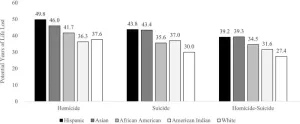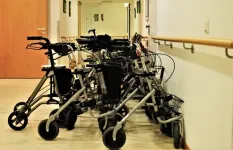(Press-News.org) EMBARGOED FOR RELEASE UNTIL 4 P.M. ET, WEDNESDAY, FEBRUARY 7, 2024
MINNEAPOLIS – The drugs used to treat erectile dysfunction may also be associated with a reduced risk of Alzheimer’s disease, according to a study published in the February 7, 2024, online issue of Neurology®, the medical journal of the American Academy of Neurology. The study does not prove that erectile dysfunction drugs reduce the risk of Alzheimer’s disease. It only shows an association.
Erectile dysfunction drugs, which work by dilating blood vessels to allow more blood to flow through, were first developed to treat high blood pressure. A new study suggests that the drugs may be tied to a reduced risk of Alzheimer’s disease.
“Although we’re making progress with the new treatments for Alzheimer’s disease that work to clear amyloid plaques in the brain for people with early stages of the disease, we desperately need treatments that can prevent or delay the development of Alzheimer’s disease,” said study author Ruth Brauer, PhD, of the University College London in the United Kingdom. “These results are encouraging and warrant further research.”
The study involved 269,725 male participants with an average age of 59 who were newly diagnosed with erectile dysfunction. Participants did not have any memory or thinking problems at the start of the study. They were then followed for an average of five years. The study compared the 55% of the participants who had prescriptions for erectile dysfunction drugs to the 45% who did not have prescriptions.
During the study, 1,119 people developed Alzheimer’s disease.
Among the participants taking erectile dysfunction drugs, 749 developed Alzheimer’s disease, which corresponds to a rate of 8.1 cases per 10,000 person-years. Person-years represent both the number of people in the study and the amount of time each person spends in the study. Among those who did not take the drugs, 370 developed Alzheimer’s disease, which corresponds to a rate of 9.7 cases per 10,000 person-years.
Once researchers adjusted for other factors that could affect the rate of Alzheimer’s disease, such as age, smoking status and alcohol consumption, they found that people who took erectile dysfunction drugs were 18% less likely to develop Alzheimer’s than people who did not take the drugs.
The association was strongest in those who were issued the most prescriptions over the study period.
“More research is needed to confirm these findings, learn more about the potential benefits and mechanisms of these drugs and look into the optimal dosage,” Brauer said. “A randomized, controlled trial with both male and female participants is warranted to determine whether these findings would apply to women as well.”
The study was based on prescription records. A limitation of the study is that researchers did not have information on whether participants actually filled the prescriptions and used the drugs.
Learn more about Alzheimer’s disease at BrainandLife.org, home of the American Academy of Neurology’s free patient and caregiver magazine focused on the intersection of neurologic disease and brain health. Follow Brain & Life® on Facebook, Twitter and Instagram.
When posting to social media channels about this research, we encourage you to use the hashtags #Neurology and #AANscience.
The American Academy of Neurology is the world’s largest association of neurologists and neuroscience professionals, with over 40,000 members. The AAN is dedicated to promoting the highest quality patient-centered neurologic care. A neurologist is a doctor with specialized training in diagnosing, treating and managing disorders of the brain and nervous system such as Alzheimer’s disease, stroke, migraine, multiple sclerosis, concussion, Parkinson’s disease and epilepsy.
For more information about the American Academy of Neurology, visit AAN.com or find us on Facebook, Twitter, Instagram, LinkedIn and YouTube.
END
Erectile dysfunction drugs may be linked to reduced risk of Alzheimer’s disease
2024-02-07
ELSE PRESS RELEASES FROM THIS DATE:
Q&A: Helping robots identify objects in cluttered spaces
2024-02-07
Imagine a coffee cup sitting on a table. Now, imagine a book partially obscuring the cup. As humans, we still know what the coffee cup is even though we can't see all of it. But a robot might be confused.
Robots in warehouses and even around our houses struggle to identify and pick up objects if they are too close together, or if a space is cluttered. This is because robots lack what psychologists call "object unity," or our ability to identify things even when we can't see all of them.
Researchers at the University of Washington ...
Evaluation of ruxolitinib, a Janus Kinase inhibitor, in multiple myeloma
2024-02-07
“[...] the results of the studies presented in this review will hopefully provide the impetus for conducting additional preclinical and clinical studies to evaluate RUX in the setting of MM as well as other types of cancer.”
BUFFALO, NY- February 7, 2024 – A new research perspective was published in Oncotarget's Volume 15 on February 5, 2024, entitled, “Preclinical and clinical evaluation of the Janus Kinase inhibitor ruxolitinib in multiple myeloma.”
In this new paper, researchers Ashley Del Dosso, Elizabeth Tadevosyan, and James ...
Blood thinners added to clot-busting medication did not improve stroke outcomes
2024-02-07
Research Highlights:
Although giving blood thinners along with clot-busting medication may help in treating heart attacks, it did not improve 90-day outcomes in people with clot-caused strokes.
Enrollment in a large clinical trial, which had been planned to include more than 1,200 patients with ischemic stroke (clot-caused stroke), was halted after an independent data and safety monitoring board found no indication of benefit among the first 500 patients.
The data analysis for the 500 enrolled participants found giving blood thinners along with clot-busting medication did not increase the risk of bleeding into the brain.
Embargoed ...
Reinforcing the diverse ways people access seafood can ensure healthy communities in the face of change
2024-02-07
(Santa Barbara, Calif.) — As climate change affects the oceans, coastal communities, particularly those at the front lines of ocean warming and sea level rise, are facing pressures that could threaten their access to aquatic foods.
“Climate change and other economic shocks are impacting how people access seafood, and typically households that are most reliant on seafood, such as those in Pacific Island countries, are most at risk,” said Jacob Eurich, a research associate at UC Santa Barbara’s Marine Science Institute, and a fisheries scientist at the Environmental Defense Fund. Which is why, he added, it is necessary to increase food system resilience in the area, ...
Non-white victims of lethal violence and suicide in the US die significantly younger than their white counterparts
2024-02-07
In the US, people of color who are killed by violence or die by suicide lose more potential years of life than white victims, according to a new study, which also explored factors that may contribute to these disparities. Gregory Zimmerman of Northeastern University in Boston, US, and colleagues present these findings in the open-access journal PLOS ONE on February 7, 2024.
Mounting evidence suggests that, among victims of violence in the US, the average number of potential years of life lost—how much longer the victim would have lived if they survived—is greater for people of color than for white people.
To deepen understanding, Zimmerman ...
Almost 1 in 5 Indian adults aged 60+ show signs of mild neurocognitive disorder, according to nationally representative data - more than previously recognized
2024-02-07
Almost 1 in 5 Indian adults aged 60+ show signs of mild neurocognitive disorder, according to nationally representative data - more than previously recognized
###
Article URL: https://journals.plos.org/plosone/article?id=10.1371/journal.pone.0297220
Article Title: Prevalence of DSM-5 mild and major neurocognitive disorder in India: Results from the LASI-DAD
Author Countries: USA, UK, India
Funding: This work was supported by the National Institute on Aging (R01 AG051125 (JL), R01 AG030153 (JL), U01 AG064948 (JL), R01 AG070953 (ALG)). The funders had no role in study design, ...
More biodiverse nature landscapes may better buffer against stress - but only if you notice the difference, per experiment using videos of urban woodland
2024-02-07
More biodiverse nature landscapes may better buffer against stress - but only if you notice the difference, per experiment using videos of urban woodland
###
Article URL: https://journals.plos.org/plosone/article?id=10.1371/journal.pone.0297179
Article Title: Does increasing biodiversity in an urban woodland setting promote positive emotional responses in humans? A stress recovery experiment using 360-degree videos of an urban woodland
Author Countries: UK
Funding: SF received a PhD Studentship funding from the UKRI Economic and Social Research Council, ...
UK austerity politics correlated with increased frailty in the oldest adults
2024-02-07
The period of austerity politics from 2012 to 2018 was associated with steeper increases in frailty with age compared to pre-austerity between 2002 and 2010, according to a new study published February 7th in the open-access journal PLOS ONE by Carys Pugh of the University of Edinburgh, UK, and colleagues.
Previous research has linked a stalling in life expectancy growth to austerity politics implemented in response to the 2008-2009 financial crisis. However, the mechanism through which public spending cuts are associated with decreased life expectancy ...
Psychology study unearths ways to bolster global climate awareness and climate action
2024-02-07
An international team of scientists has created a tool that can aid in increasing climate awareness and climate action globally by highlighting messaging themes shown to be effective through experimental research.
The web-based tool, and the methods undergirding its creation, appears in the journal Science Advances.
The tool stems from a study involving nearly 250 researchers that drew more than 59,000 participants from 63 countries, including Algeria, China, Denmark, Germany, Israel, Japan, New Zealand, Peru, and the United States.
“We ...
Scientists reveal why blueberries are blue
2024-02-07
Tiny external structures in the wax coating of blueberries give them their blue colour, researchers at the University of Bristol can reveal.
This applies to lots of fruits that are the same colour including damsons, sloes and juniper berries.
In the study, published today in Science Advances, researchers show why blueberries are blue despite the dark red colour of the pigments in the fruit skin. Their blue colour is instead provided by a layer of wax that surrounds the fruit which is made up of miniature structures that scatter blue and UV light. This gives blueberries their blue appearance to humans and blue-UV to birds. The chromatic blue-UV reflectance ...







